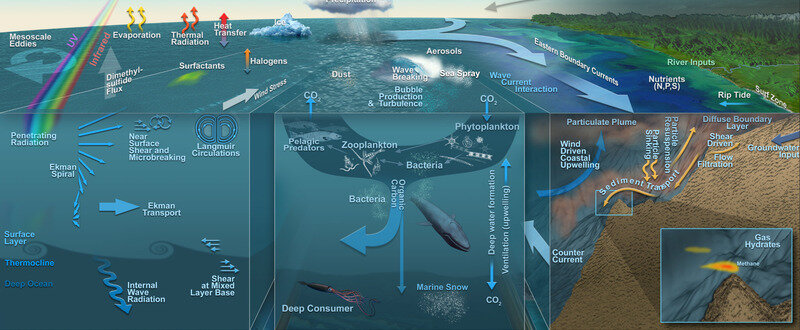Oceanography
Oceanography, Science Discipline
Oceanography, sometimes also called “oceanology,” is the study of the physical and biological aspects of the ocean.
Oceanography is an important Earth science, which covers a wide range of topics, including ecosystem dynamics; ocean currents, waves, and geophysical fluid dynamics; plate tectonics and the geology of the sea floor; and fluxes of various chemical substances and physical properties within the ocean and across its boundaries. Oceanography’s diverse topics reflect multiple disciplines that oceanographers blend to further knowledge of the world ocean and understanding of processes within: astronomy, biology, chemistry, climatology, geography, geology, hydrology, meteorology and physics. Paleoceanography studies the history of the oceans in the geologic past. An oceanographer is a person who studies many matters concerned with oceans including marine geology, physics, chemistry and biology.
Oceanography may be a particularly important science because Earth’s oceans cover more than 70% of the planet’s surface. Approximately 97.5% of Earth’s water is held in the planet’s oceans. The oceans are also a key part of the hydrologic cycle, in which water cycles from the surface of the ocean to the Earth’s atmosphere, and returns to the land or sea as rain.
